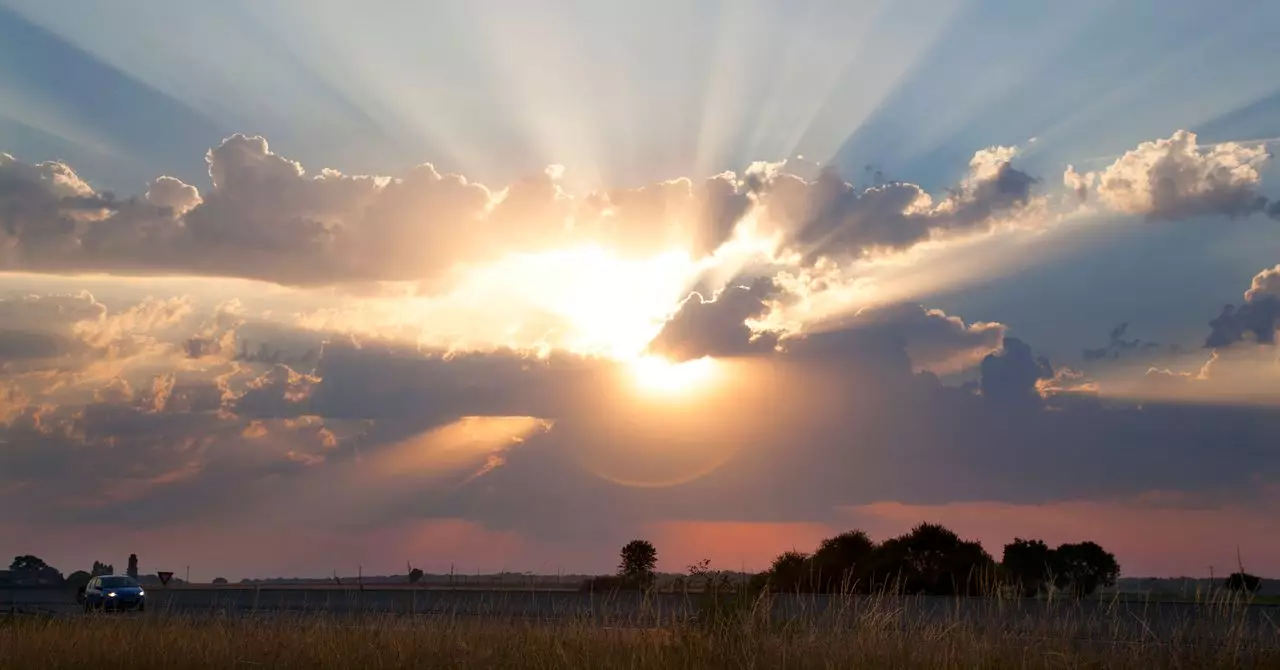As the grim realities of climate change continue to unfold, innovative solutions are constantly being sought to mitigate its effects. One such possibility lies in geoengineering—an empirical approach that involves manipulating the environment to counteract warming effects. Among these tech ventures, Stardust emerges as a potentially pivotal player, with its foundations deeply rooted in the belief that solar geoengineering will be crucial in combating global warming over the next few decades. However, while the promise of new technologies excites many, it also raises serious ethical questions about its governance and transparency.
Clients of the Future: Governments and Their Risks
Stardust appears to be eyeing government contracts as its primary clientele. This strategic alignment with state actors suggests an awareness of the immense scale at which geoengineering projects would need to operate. Experts speculate that Stardust aims to optimize tools for national administrations in a world increasingly inclined to investigate geoengineering strategies. Yet, this model introduces an unsettling dynamic: if governments choose not to invest in such technologies, the risk lies squarely on the shoulders of private investors who might find their capital doused in uncertainty. This dependency on reluctant public funding remains a precarious tightrope for Stardust’s business model.
The Patent Conundrum: Innovation vs. Accessibility
The company’s ambitions do not merely stop at seeking clientele; they are also on a quest to patent their geoengineering technologies. The rationale seems clear: by securing proprietary rights, Stardust hopes to uphold its competitive edge as global interest in geoengineering burgeons. Yet, this drive for intellectual property stirs unease among some experts, who question the morality of keeping such essential technologies under lock and key when the world might benefit from broader access.
Janos Pasztor, a respected climate governance consultant, suggests an alternative model where Stardust could openly share its designs, mirroring strategies from history where technological advancements fostered collective benefits over proprietary gains. He emphasizes that transparency could engender trust—not just from potential clients, but from the wider public who may be directly impacted by the consequences of geoengineering interventions.
The Transparency Crisis: Building Trust in the Unknown
The lack of transparency from Stardust is troubling. According to Shuchi Talati, founder of The Alliance for Just Deliberation on Solar Geoengineering, there’s little to no public engagement associated with their ongoing projects. This vacuum of information breeds suspicion, risking public backlash against a company that seems to be treading into uncharted ethical waters without guidance or accountability.
The absence of proactive communication risks turning a skeptical public into an adversarial one; conspiracy theories could flourish in the absence of facts and transparency. Stardust’s failure to engage meaningfully may cause irreparable damage to its reputation. As history shows, companies that aim to operate behind a veil of secrecy often find themselves confronted with widespread mistrust that can derail their endeavors.
The Investment Dilemma: Balancing Profit and Ethical Responsibility
The funding model for companies like Stardust involves venture capital investments—a system often at odds with scientific integrity. Critics, including Benjamin Day of Friends of the Earth, argue that having shareholders influences the company to justify its actions through potential profit rather than ethical standards. This conflict could transform the noble pursuit of addressing climate change into a profit-driven agenda, undermining the very scientific ideals that must underpin geoengineering initiatives.
With the ongoing threat of climate change looming larger, the stakes couldn’t be higher. If governments adopt these technologies without due diligence or ethical considerations, they risk becoming inseparably tethered to a company like Stardust, which could monopolize a sizable share of geoengineering capabilities.
What’s necessary in navigating these complex waters is a commitment to open dialogue, community engagement, and adherence to ethical standards—elements that are currently absent in Stardust’s operations. As the world teeters on the brink of climate catastrophe, transparency will be as vital as the technologies themselves.

